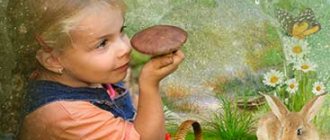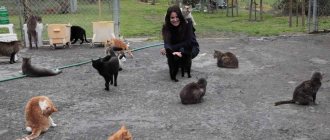What can be made from a plastic bottle?
Most often, it is from these unnecessary things that counterfeits of the second life type are made, without any effort. By cutting off the top you can get an excellent stand for makeup brushes or stationery.
If you show a little imagination, you can even make a real Christmas tree decoration. They no longer use the lower part, but the upper part. The plastic is cut into pieces, which are decorated with rhinestones, rain, snowflakes, sparkles, and so on.
Then they are fastened at the top with the edges so that the toy turns out to be pot-bellied or oblong. The place with the carving is also covered with some kind of decor, and a hole is made in the lid for a loop, through which the toy is hung on a branch.
Featured Topics
Here you can see TOPICS THAT WERE SUGGESTED BY OTHER GUYS
- How to quickly learn a poem?
- Why are cats afraid of mice?
- Russian and European snowman: what are the similarities and what are the differences?
- Ballpoint pen: yesterday, today, tomorrow.
- How to learn to forgive?
- Sizes of clothing and shoes in Europe and Russia.
- How to choose a ripe watermelon?
- What are nicknames talking about?
- Any shoes get wet: truth or myth?
- Emoticons in SMS communication.
- How does the weather affect your mood?
- Rhyme in advertising.
- How does a pen affect handwriting?
- Why is it harmful to walk in high heels?
- How does a spider weave a web?
- What do girls and boys think about marriage?
- Why do teachers give bad grades?
- Barbie doll - the ideal of female beauty: truth or myth?
- Money is evil: truth or myth?
- What do gestures say about your mood?
- Typical mistakes in speakers' speech.
- How does a glass work to structure water?
- Excel is a genius mathematician.
- 2*2=4?
- The Volga River flows for a long time from afar.
- What does handwriting say about character?
- Typical mistakes in illustrations for fairy tales.
- Algorithms in everyday life.
- Pavka Korchagin in the modern world.
- Golden ratio in literature.
- Symmetry in the landscape.
- Cold shower: harm or benefit?
- Law “On conscription and military service”: yesterday, today, tomorrow.
- The army changes people for the better: truth or myth?
- Well-being: yesterday, today, tomorrow.
- Politeness norms in different countries: what are the similarities and what are the differences?
- A smile will make everyone brighter.
- Numbers in fairy tales.
- Mobile phone: yesterday, today, tomorrow.
- How to confess your love?
- Cleanliness in Europe and Russia: what are the similarities and what are the differences?
- Condensed milk: harm or benefit?
- How does a piano work?
- Summer is a small life.
- Little Red Riding Hood in the modern world.
- Antibiotics: harm or benefit?
- Why are Russian people easy to recognize abroad?
- Online communication: yesterday, today, tomorrow.
- How to organize your time?
- What does “healthy person” mean?
- How does Internet advertising work?
- Why do people yawn?
- Why turn off your mobile phone on a plane?
- Road signs in Russia and Europe.
- Quotes from literature in press headlines.
- English words in food names.
- Historical events in works of art.
- Soft toys: yesterday, today, tomorrow.
- Why do coins have ribs?
- Name and character are connected: truth or myth?
- Why do leaves turn yellow in autumn?
- The nature of humor.
- What do hedgehogs eat?
- How does a tambourine work?
- Salt is a material for creativity.
- How to teach a dog to follow commands?
- What does "true friend" mean?
- Why don't cats like to swim?
- Dancing has health benefits.
- How does a rainbow appear?
- Why do pens leak?
- Well-being: yesterday, today, tomorrow.
- Attitude to the law in Russia and the USA: what are common and what are the differences?
- Typical mistakes in choosing a life position for students.
- How does fear work?
- Phone: yesterday, today, tomorrow.
- Electricity in living organisms.
- Why is archeology needed?
- Grades in schools in different countries: what are the similarities and what are the differences?
- How does electric current work?
- Thought is material: truth or myth.
- Teacher's profession: yesterday, today, tomorrow.
- How to achieve emotional balance?
- Social networks: harm or benefit?
- How to respond to rudeness?
- Character depends on the zodiac sign: truth or myth?
- Number systems in barcodes.
- Books: yesterday, today, tomorrow.
- Perceiving music through speakers and headphones: what are the similarities and what are the differences?
- How does a soap dispenser work?
- How does a microwave oven work?
- Why do some professions retire early?
- Fashionable shoes: yesterday, today, tomorrow.
- What does "wealth" mean?
- How to choose a good gift?
- What does "rest" mean?
- Loneliness is the absence of kindness.
- Why does the sparrow always jump?
- Seeds: harm or benefit?
- Why is it equally difficult to fall asleep in the evening and wake up in the morning?
- Diary: yesterday, today, tomorrow.
- Why is the student late and the teacher late?
- School board: yesterday, today, tomorrow.
- Mosaic is a logic game.
- Nowadays the school has 1st grade, like an institute.
- Why can’t starfall be observed all the time, but only at certain times of the year?
- What do your classmates think about your desire or unwillingness to study?
- Scotch tape is a material for all occasions.
- Chewing gum: harm or benefit?
- What do the bosses of successful and unsuccessful companies think about their subordinates?
- What does "mushroom rain" mean?
- Let's compliment each other.
- Violation of human rights in fairy tales.
- What do homeless people think about the meaning of life?
- Mobile phone radiation is dangerous: truth or myth?
- Newsprint is a good insulation material.
- What and why does frost appear on glass?
- Why do we sneeze?
- Why does a snowflake have 6 ends?
- What do teachers think about cheat sheets?
- Why is the anthem played at special events?
- Time heals: truth or myth?
- Thunderstorms in the south and in the north: what are the similarities and what are the differences?
- Homework: yesterday, today, tomorrow.
- How does a refrigerator work?
- Why do apples fall from apple trees at night?
- Why do people have nervous breakdowns?
- What does "rest" mean?
- Weather on earth: yesterday, today, tomorrow.
- Why do people lie?
- How to photograph a sunset?
- Money doesn't buy happiness: truth or myth?
- How do 3D glasses work?
- How does a teacher's speaking rate affect understanding?
- If you look at a mushroom, it will stop growing: true or myth?
- How to solve a Rubik's cube?
- Numbers in Russian folk tales.
- The letter “е” disappears: truth or myth?
- How to organize files on your computer so you can find everything?
- Color nouns in catalogs of cosmetic companies.
- What does "help" mean?
- Typical mistakes in children's speech.
- Cold shower: harm or benefit?
- Why do flower buds close at night?
- Why do so many people feel depressed in the fall?
- How to learn to pronounce tongue twisters?
- Why do we sneeze?
- Cheat sheet helps you learn: truth or myth?
- Gymnastic exercises in television advertising.
- Learning English: yesterday, today, tomorrow.
- Why do people like to listen to music?
- Auto tuning in Russia and America: what are the similarities and what are the differences?
- Why does something give you goosebumps?
- Cyclicity in nature.
- Typical mistakes in preparing presentations.
- Animals understand human speech: truth or myth?
- Credit is voluntary slavery.
- Photoshop: harm or benefit for photography?
- How to choose flowers for a girl?
- Why do children crawl when they can already walk?
- Schoolbag: yesterday, today, tomorrow.
- How does hair conditioner work?
- How to brew green tea correctly?
- What does a “good umbrella” mean?
- Why is the water in the sea salty?
- Why does a person need nails?
- Why are people lazy?
- Poppy in medicine and food industry.
- Typical mistakes on business cards.
- Plastic dishes are an eternal inhabitant of our planet.
- A smile is a universal communication tool.
- Vaccinations: harm or benefit?
- How to ask for help?
- Why do people cry for joy?
- People's behavior in everyday life and while driving: what are the similarities and what are the differences?
- Color words in Russian and German.
- Friends in need: truth or myth?
- Happiness is when you are understood.
- Why do you see the power button glowing when you point the camera at the TV remote control?
- Why rewrite the problem statement from the textbook?
- Moral code of representatives of different professions: what are common and what are the differences?
- Proper nouns in food names.
- All diseases are caused by nerves: truth or myth?
- What is "charisma"?
- All people are kind by nature: truth or myth?
- Geometric shapes in nature.
- Why don't dogs like cats?
- Computer games: harm or benefit?
- The structure of road junctions in Russia and Europe: what are common and what are the differences?
- Hardening: harm or benefit?
- Where do small midges come from around a cut watermelon?
- School uniform: yesterday, today, tomorrow.
- How to ask for forgiveness?
- Architecture of residential buildings: yesterday, today, tomorrow.
- How to write a poem?
- Reflection of sounds made by animals in different languages.
- Cosmetics: harm or benefit?
- What do smokers think about smoking?
- Numerals in different languages.
- Why are children afraid of tickling, but adults are not?
- Reading lying down is harmful: truth or myth?
- Why do the leaves on poplars turn yellow earlier than on other trees?
- Unified State Exam: yesterday, today, tomorrow.
- Numerals in proverbs and sayings.
- Why do people lie?
- The heat does not ache in the bones: truth or myth?
- Imperative verbs in advertising.
- Leopold the cat in the modern world.
- Music is a psychotherapeutic tool.
- Why do people litter?
- What does "mushroom rain" mean?
- A black cat brings misfortune: truth or myth?
- What do people think about their salary?
- Why does an online translator make mistakes?
- Why do people break traffic rules?
- A coward doesn't play hockey: truth or myth?
- Table lamps: yesterday, today, tomorrow.
- Cinema in the cinema or at home via a computer: what are the similarities and what are the differences?
- Why the sky is blue?
- Christmas tree in pictures and in life: what are the similarities and what are the differences?
- Oliver Twist in the modern world.
- Why don't cats eat from your hands?
- How does sound come from a string on a guitar?
- Abbreviations in SMS and in official documents: what are the similarities and what are the differences?
- Why do people laugh?
- What does “nothing” mean in response to the question “How are you”?
- Why is the lesson 45 minutes?
- Wind, wind, you are powerful.
- What do older people think about the modern world?
- Clouds in the city and outside the city: what are the similarities and what are the differences?
- Comics: yesterday, today, tomorrow.
- People don't change: truth or myth?
- Why does the sun turn red at sunset?







